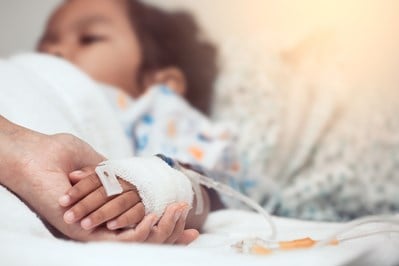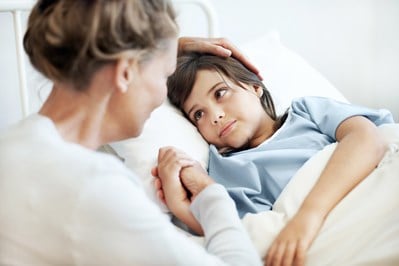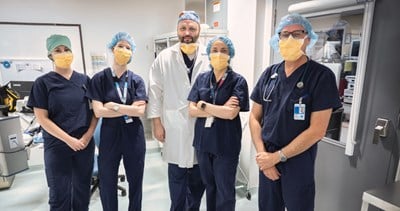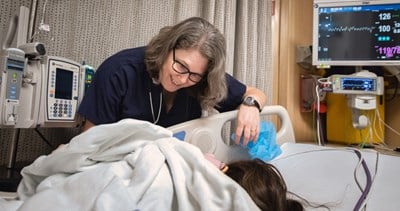
Before Your Child’s Surgery
Please download and use the Coming for Surgery Workbook (PDF) to help inform and prepare you for surgery at SickKids. Everyone’s journey is different, but this workbook provides information about preparing for surgery, the day of and after surgery as well as space for you to document information and questions you have. It also includes a packing list. We encourage you to bring this workbook with you on the day of surgery.
The workbook is also available in French, Arabic, Simplified Chinese and Spanish.
Also review information on what to expect the day of surgery.
Day before surgery
Expand the sections below to learn more about each step before your child’s surgery.
The rules about eating and drinking before an operation are very important. Any food or liquid in your child's stomach while going to sleep under anesthesia can flow up to the mouth and pass down into the lungs. This is very dangerous for your child.
Review the Rules for Eating and Drinking Before Operation Time (PDF) for full instructions.
If your child is sick in the 2 weeks leading up to surgery please contact 416-813-7654 ext. 227502 and leave a message. A nurse will return your call.
It is important that your child does not have any other illnesses that will make it harder for them to recover from their surgery. A fever, cold, cough, runny nose, or sore throat can become much worse after an anesthetic or make it harder for your child to breathe during or after the procedure.
Does your child have any of the health issues listed below?
- Recent asthma flare
- Fever, cold, cough, runny nose or sore throat
- Recent viral infection including COVID-19, flu, pneumonia and RSV.
If your child has any of the above symptoms in the 2 weeks leading up to surgery please contact 416-813-7654 ext. 227502 and leave a message. A nurse will return your call.
For instructions to SickKids by car or public transit, review Map & Directions. For places to park around the hospital, please see Parking Information.
Leave yourself lots of time to get to SickKids so you arrive two hours before the scheduled surgery time.
For those staying overnight and looking for places to stay close to SickKids, please visit Staying Overnight.
- Bring all medications and herbal remedies that your child is currently taking in original containers. This includes: pills, inhalers, puffers, injections, eye drops, vitamins, etc. Alternatively, take a photo of the labels of each bottle or container of your medications to show to your care team on the day of surgery
- Bring your child’s Ontario health card
- Bring contact information of your family doctor and/or paediatrician, as well as any specialists
- Bring any medical supplies that your child requires daily (i.e. feeding tube attachments, mobility devices).
At SickKids we do our best to prevent infections after surgery. You play an important role in reducing your child’s risk of infection by ensuring they have been bathed properly before their surgery.
Because skin is not sterile, there are steps that need to be taken to make sure your child’s skin is as free of germs as possible before surgery. You can reduce the number of germs on the skin by carefully bathing them before surgery using the instructions below. Please report any rashes, infections, open areas or sores on your child’s skin to their surgeon before the scheduled surgery date for any further instructions.
Important: Your child will need to bathe with liquid soap. The soap needs to be in liquid form to prevent cross contamination that occurs with bar soap. The brand of soap does not matter.
Younger children should be bathed by a parent or guardian; older children should be supervised to make sure that washing is done effectively.
Patients coming for surgery should remove all nail polish and jewelry including piercings and not wear any makeup or apply lotion on the day of surgery.
Review Bathing at Home Before a Procedure (PDF) for full instructions.
We do not recommend bringing any other children to the hospital with you on the day of surgery. If possible, we recommend alternative arrangements for siblings. Siblings are not permitted to visit patients in the recovery room, nor the intensive care unit, or some other areas of the hospital where patients require very specific care.
Learn about guidelines for Visiting a Patient.
Common health issues that increase anesthesia risk
Asthma, breathing and heart conditions, common colds, medications, and supplements can affect children under anesthesia. Prior to your child's surgery or procedure, an assessment with the Pre-Anesthesia Clinic may be booked which will help you navigate common health issues ahead of surgery.
Children with asthma are at higher risk for bad reactions, like breathing problems, either during or after surgery. If your child has asthma, you can help reduce the risk by making sure their asthma is well managed before the procedure or operation.
Children with asthma may have symptoms like:
- Wheezing
- Coughing
- Tightness in the chest
- Shortness of breath
- Sensitivity to irritants like cold air, common allergens and second-hand smoke
If your child has asthma and often has these symptoms, please book an appointment with your family doctor or paediatrician to try to get them under control well before their procedure or operation. A change in medicine or a visit to a specialist may be needed. Please book this appointment at least six weeks in advance of the surgery, procedure or test.
Asthma medication on the day of surgery
It is very important that you bring your child’s puffer or other medicine to treat symptoms, on the day of surgery.
Your child should take any prescribed asthma medicines (such as Flovent) as usual on the morning of surgery. Your child may be asked to take this medicine, even when not having symptoms on the day of the procedure and possibly in the days before as well.
Children with breathing, heart or other serious medical issues need special care when given anesthesia for a procedure or operation.
If your child has a chronic (ongoing) or complex medical problem, you must tell your anesthesiologist about their normal health routines and conditions. You need to work with your anesthesiologist to make a care plan that is best for your child. If your child has a specialist, the anesthesiologist may require documentation or need to communicate with them in order to determine the best way to support them during and after the surgery.
Herbal medicines and supplements may be a big part of your child’s usual health routine. However, some herbal medicines that are normally safe can cause problems if your child is having a procedure or operation under anesthesia.
Herbal medicines can be unsafe for children under anesthesia because they:
- Are not regulated, and your doctor will not know exactly what is in the medicine
- May increase your child’s risk of bleeding
- Make anesthesia last longer
- May cause low or high blood pressure
- Can cause many other side-effects and complications
It is important to discuss all herbal medications your child is taking during your pre-anesthesia assessment.

Preparing for surgery and hospitalization
As a parent, you can play an important role in preparing your child for a stay in hospital. Learn about your child's operation, ask questions, and find out how you can prepare your child.

General anesthesia
Your child's stomach must be empty before a general anaesthetic. Follow these instructions to help your child get ready for an operation, test or treatment.

Talking to your child about surgery
You can help your child if you learn as much as possible about their condition, modeling calm behaviour and explaining what is going to happen using words they can understand.
More in this section

Review this important information to help prepare for surgery.

Parents and children can navigate fear and anxiety by knowing what to expect on the day of surgery, and reviewing after surgery care information.

